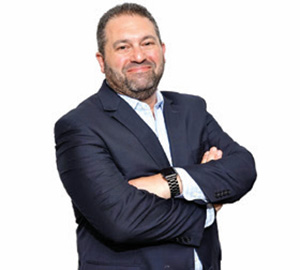
The Torah in Parshat Acharei Mot (Leviticus 16:1) details the avoda the kohen gadol performs on Yom Kippur. This step-by-step process is further illuminated in the Yom Kippur Musaf liturgy. Among many other things, the high priest prays for forgiveness: first for himself, then his family and then for all of Israel—V’chiper ba’ado, uve’ad beito, uve’ad kol kehal Yisrael. In fact, the Talmud (Yoma 13) details that the kohen gadol would have a “standby wife” just in case his wife passed away. He was prohibited to do the avoda unless he was married. He couldn’t ask for forgiveness for all of Israel unless he was first able to pray for himself and his family. There was a progression.
Interestingly, the Rambam lists the entire avoda of Yom Kippur, all the sacrifices, rituals, etc., as a single mitzvah (#400). In order to fulfil the commandment, the kohen gadol had to complete the avoda with all the steps and all the intricacies.
We as Jews, and as observant Jews at that, have many obligations in our lives. The pressures on our time each day are enormous. Between minyanim, taking care of our children (and/or our parents) and making a living there is often time for little else. But we must make time. The avoda of Yom Kippur tells us that it’s not enough to take care of ourselves and of our families; we must take responsibility for all of Israel as well.
As a past shul president and current school co-president I am often confronted with “I have no time to volunteer.” I don’t like the word volunteer. It implies some form of choice. It is not an option. It is a requirement of each one of us to step up in some way to serve the community. Perhaps “unpaid worker” would be a more apt description.
In Megillat Esther, Mordechai confronts the recalcitrant Esther to step up and do what needs to be done, but he does it in a different way. He says: “If you will remain silent now, someone will save us… but who knows if it is not just for this that you rose to be queen” (Esther 4:14). Mordechai says to her, who are you to say that you were not placed on this earth, right here, right now, to step up and do this?
What a powerful message. Each of us is given by Hashem a set of talents that we use every day. Which one of us has the right to say “no” when asked to step up? Which one of us can say that we were not placed on this earth, right here, right now, to step up and do this. If we viewed our communal lives this way we would have an entirely different attitude to being oskim bitzarchei tzibur.
When I was younger, the gabbai often came over to the gentleman who sat in front of us and asked him to daven for the amud. His response was always an immediate: “It would be my pleasure.” Clearly, the gabbai knew that this man was an able baal tefillah and wouldn’t have asked him if he didn’t think he was. The person who was asked knew that given his talent for leading services it was his duty to do so when asked.
David Sable, the global president of Y&R (and a former shul president) said to me that if you are a lawyer, go do some pro-bono work for a community organization that needs legal help; if you are an accountant, go be the treasurer of the day school. You get the idea. If you have a talent, I guarantee there is a local organization that can gain from it.
Please go out and give your time and energy to a community in desperate need of qualified people to help.
Rabbi Yisroel Reisman said in one of his Saturday night Navi shiurim that when someone tells you they are too busy, it means they have something else they would rather do.
One note before you embark on the road to community service. At the end of Megillat Esther we read: Mordechai the Jew was second to King Achashverosh, a leader to the Jews, and loved by most of his brothers. Really? Most of his brothers? He just saved all the Jews and still not everyone was happy with him. In communal work you can’t make everyone happy. It doesn’t mean you shouldn’t try.
By Mark Zomick
Mark Zomick is SVP of Data Strategy at VM1 (a division of Zenith Media). He is a past president of the Young Israel of Teaneck and current co-president of TABC. He also serves as a producer and music director for the Nachum Segal Network, a position he has held for more than 30 years. His opinions are his own but should be yours as well.










